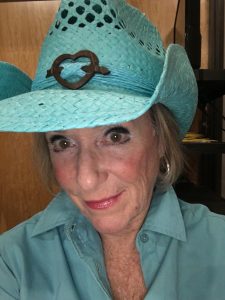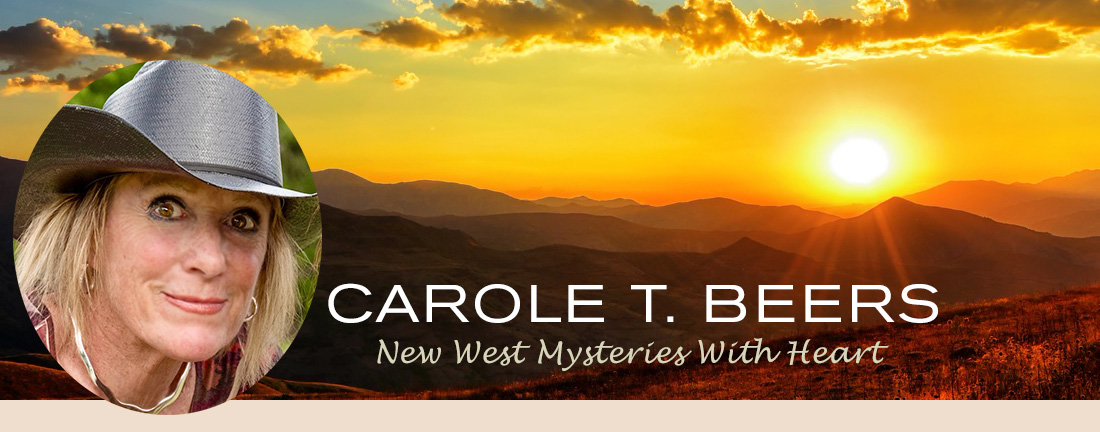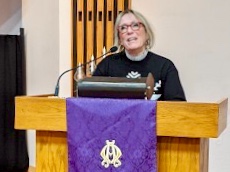
On a recent milestone birthday I called 75 “the new 60.” That may have been a slight exaggeration. But it was how I felt, or desperately wanted to feel.
Some think me young—especially those older than I. On hearing my age, people in their eighties and nineties look at me with amused forbearance, calling me “just a kid.” Is it because I relate well to tots and teens? I still make up my eyes as I did at 16 when sex-kitten Brigitte Bardot rocked the silver screen with her bouncy breasts, white lipstick and smoldering gaze (although my breasts bounce differently, now). Am quick to dance to a hot tune. Laugh loudly. Walk short dogs up tall hills.
I embrace intellect, fresh ideas. Write books. And, with a nonchalant grin or occasional grimace, heft a 40-pound Western saddle onto the back of my 16-hand horse, Brad, and ride him several days a week.
Youngers consider me old. My skin sags and wrinkles where once it was taut. My muscles, weaker now and slower to recover from stress as they did—even at 60—are quick to slack from underuse. Arthritis gnaws my fingers, knees and hips. It makes me slow to rise, and more mindful doing everyday tasks. Such physical changes feed my genetic tendency toward fleeting depression. I can’t do some things I once took for granted—what differently abled people never could do, or do with difficulty.Let’s not even talk about my mind, as known names and memories sometimes dodder.
And yet. Folks in their sixties or younger say they hope they’ll be blessed with spunk like mine when they’re old, that they’ll enjoy a “get on with it” attitude. Ouch! There’s a compliment with teeth. OK. Whatever. I’ll take it. It’s what I admired about Marjorie Lewis, a 100-year-old friend. Certainly age depression and mourning the loss of abilities and loved ones, shadowed Marjorie. And yet…
At 75, face it: I am indeed aged. I was born before World War II ended. Years of experience might gild this truth. A wish to keep going allows me to cling to illusion. But numbers don’t lie. So why do I skip or amble along in apparent denial, swept up helplessly but mostly happily in benign, unfurling time?
Call it faith. Inborn will. And a commitment to being meaner than whatever is chasing me, as my book heroine Pepper Kane would say, “down the tunnels of decrepitude.” Chasing me toward an ending—though I see death as a transition to a another dimension neither understandable nor sought. I grin, read, sip coffee. Watch the TV morning show. Tussle with dogs. Endure the sad fact of our aging and eventual demise. Look for signs and answers. Lunch with friends, attend church, deeply inhale fresh air and silence. And welcome blessings and endure curses as I find them.
Our subconscious, our spirits, see this, and know. They come to know graceful ageing is an act of will, or of NO will. Ultimately we are asked to love, forgive, accept what is, and feel what is. Look at plain truths, even if discomfiting. Just not for too long, nor too publicly. That does no one any good.
“Just do it,” I remind myself sternly or gently. I ask, “What’s next on my calendar?” I stay engaged.
As long as I have life, I must live it and try to love it. Warts and all. Nothing lasts forever in the same form. But one’s individual energy, wisdom and style endure in footprints and soul prints left on the Earth and other beings.
Breathe. Love. Cry. But most of all, smile. In my experience, even those precious aware souls who seem to have lost all, can still convey a smile, if only in their eyes. Show acceptance. Hope. Love.
And that, to me, is the ultimate triumph of mind over matter. Even when mind no longer matters.

